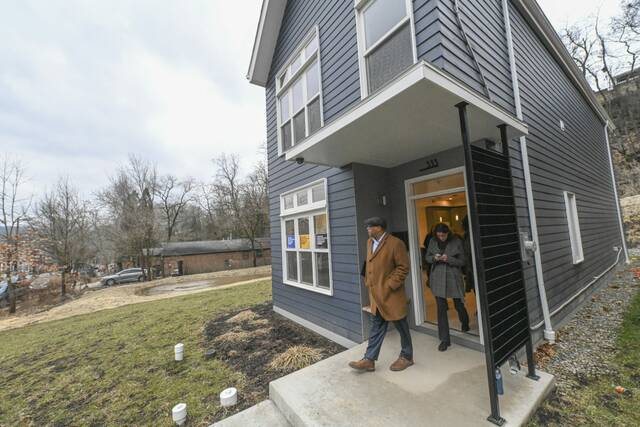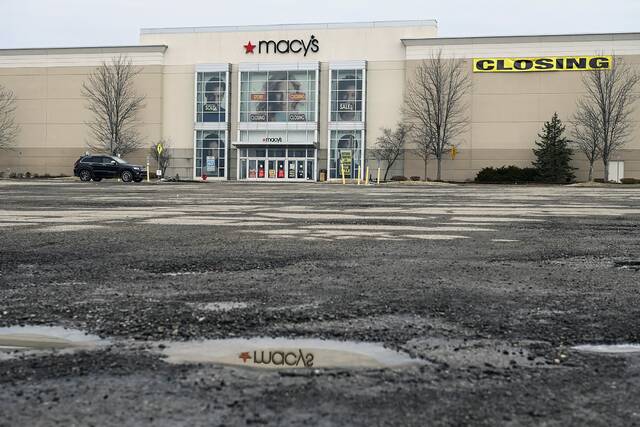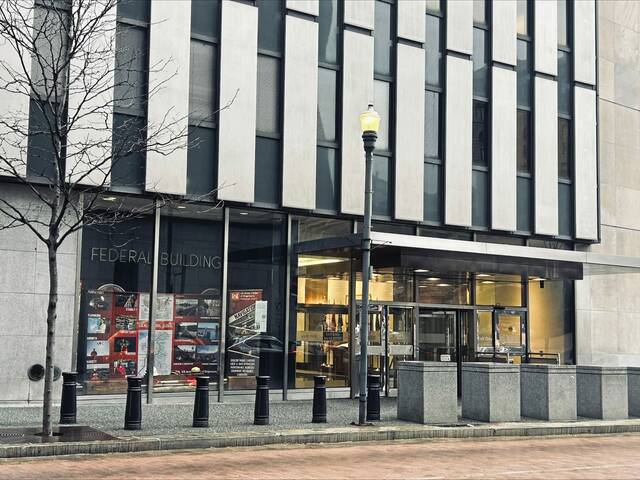A Pittsburgh councilman is warning that the city’s land bank will be broke by the end of next year unless a future funding source is found.
“It’s an immediate concern,” Councilman Bobby Wilson, D-North Side, told TribLive Tuesday.
Wilson, a member of the Pittsburgh Land Bank’s board, is looking to jump-start conversations about the program’s long-term stability before officials this year pass a 2026 budget.
Officials have highlighted the land bank as a powerful tool to fight blight and create more affordable housing, but that work could be in jeopardy.
The land bank has about $1.8 million on hand to cover the next 18 months of operations, according to the program’s manager, Sally Stadelman. Last year it spent about $885,000, she said.
Stadelman last week told council members it is imperative to find money for the program, which cannot rely on revenue generated from its sales to support itself.
The land bank, created in 2014 as an affiliate of the Urban Redevelopment Authority, sells vacant and abandoned properties to buyers who can turn them into community assets.
Because the land bank serves predominantly as an affordable housing pipeline, Stadelman said, “It’s important we can provide the property as cheaply as possible.”
If the land bank were to sell properties at high enough costs to sustain its own budget, she said, many projects would not be financially viable.
“It will never be possible for the land bank to be 100% sustained by our sales,” Stadelman said.
The land bank so far has generated more than $125,000 in revenue, according to Stadelman.
Wilson sponsored legislation — which council unanimously approved Tuesday — to create a task force to explore sustainable funding models.
“It’s crucial that there is a collective conversation and plan for the land bank’s long-term future,” Wilson said in a statement.
All options, he said, are on the table for finding the necessary cash.
The nine-person task force will include representatives from City Council, the land bank, the mayor’s office, city planning and the Urban Redevelopment Authority.
It will be tasked with reviewing the land bank’s current financial situation, exploring what has worked for other land banks and identifying potential public or private funding streams.
Despite being more than a decade old, the land bank has only recently found its footing.
Since 2023, it has sold or helped prepare for sale over 150 formerly blighted properties throughout the city.
Stadelman estimated there are about 1,000 structures in Pittsburgh not owned by the city that meet certain criteria for blight, such as condemnation or tax delinquency.
Wilson said he wants the task force to determine how much money the land bank needs to keep operating and explore ways to fill that budget gap, including allowing the land bank to keep a portion of tax revenue generated from properties it sells for several years.
The city dedicated $3.5 million in federal covid-19 relief money to the land bank, having whittled that down from former Mayor Bill Peduto’s original proposal of using $10 million in American Rescue Plan Act funds, which expire at the end of next year.
The land bank has not secured any funding beyond that point, though the city did allocate just over $157,000 in this year’s capital budget for land bank personnel.
“We got a one-time opportunity with the covid-19 relief funding,” Wilson said. “Past 2026, we’re estimated to have a balance of zero, so we don’t want it to go back to what it used to be, which is an unfunded, under-resourced land bank.”
Wilson said the land bank’s success in recent years proves it deserves funds to continue fighting blight in the years to come.
Officials have heralded the land bank as a key way to quickly and affordably move vacant, blighted and tax delinquent properties to buyers who can put them to good use.
Unlike the city itself, the land bank doesn’t have to sell to the highest bidder and can select buyers who will commit to using properties for specific purposes, like housing for low-income residents.
The land bank takes ownership of properties, clears titles, erases delinquent tax bills and conducts minor restoration work.
Officials in February touted the land bank’s success in Hazelwood, where three homes were built on properties that previously had a dilapidated building and empty lots. Low-income residents bought the new homes with help from the Urban Redevelopment Authority.








